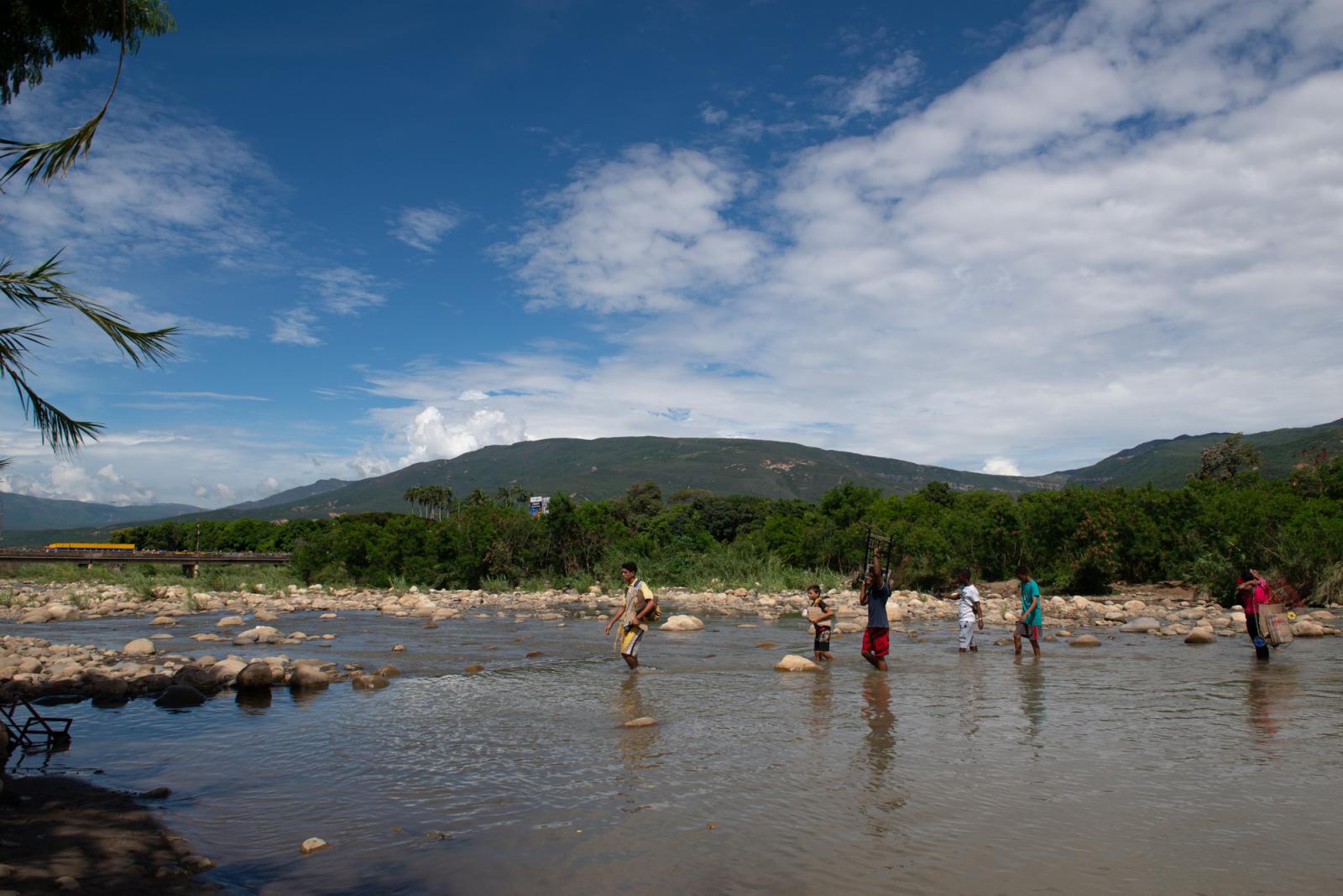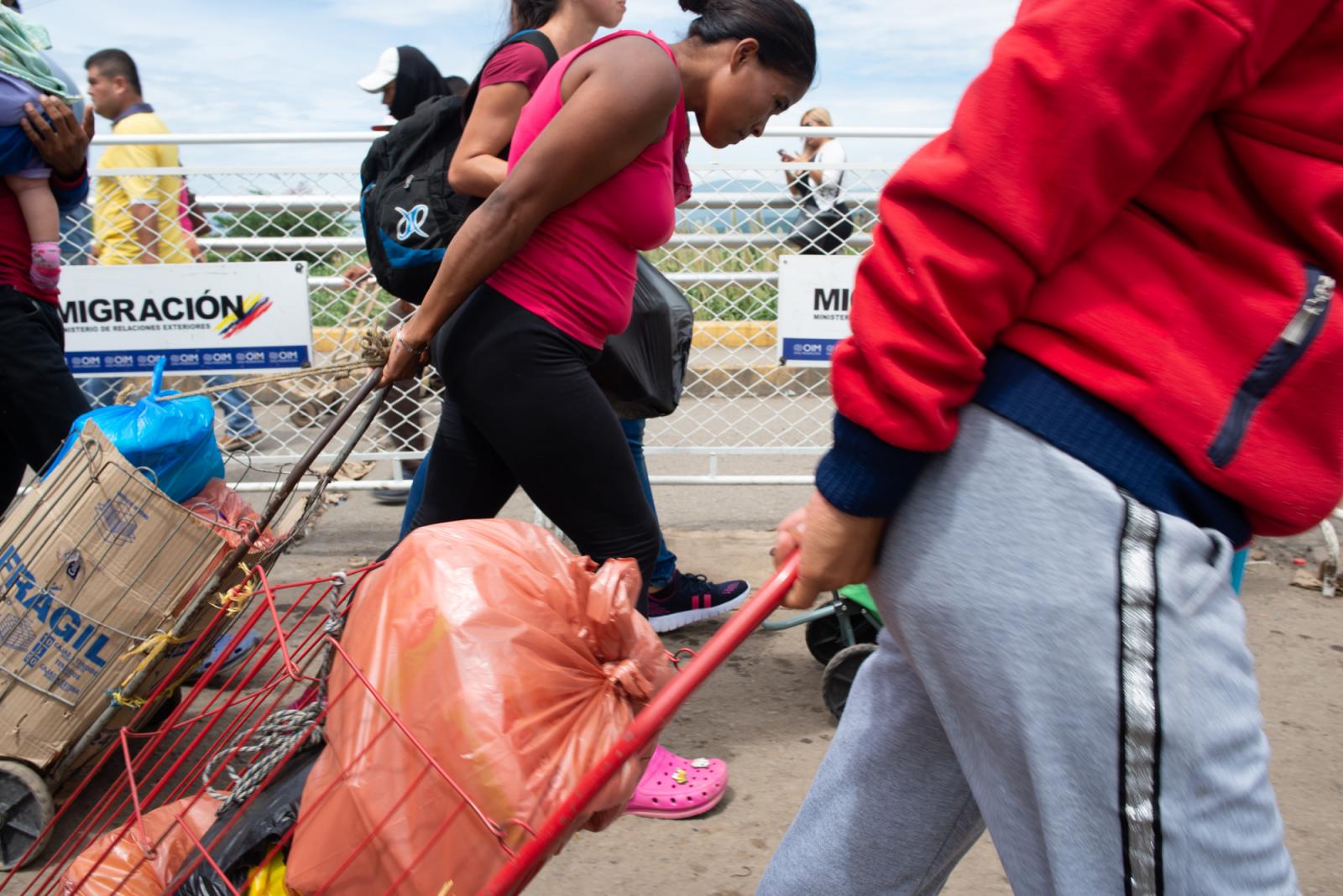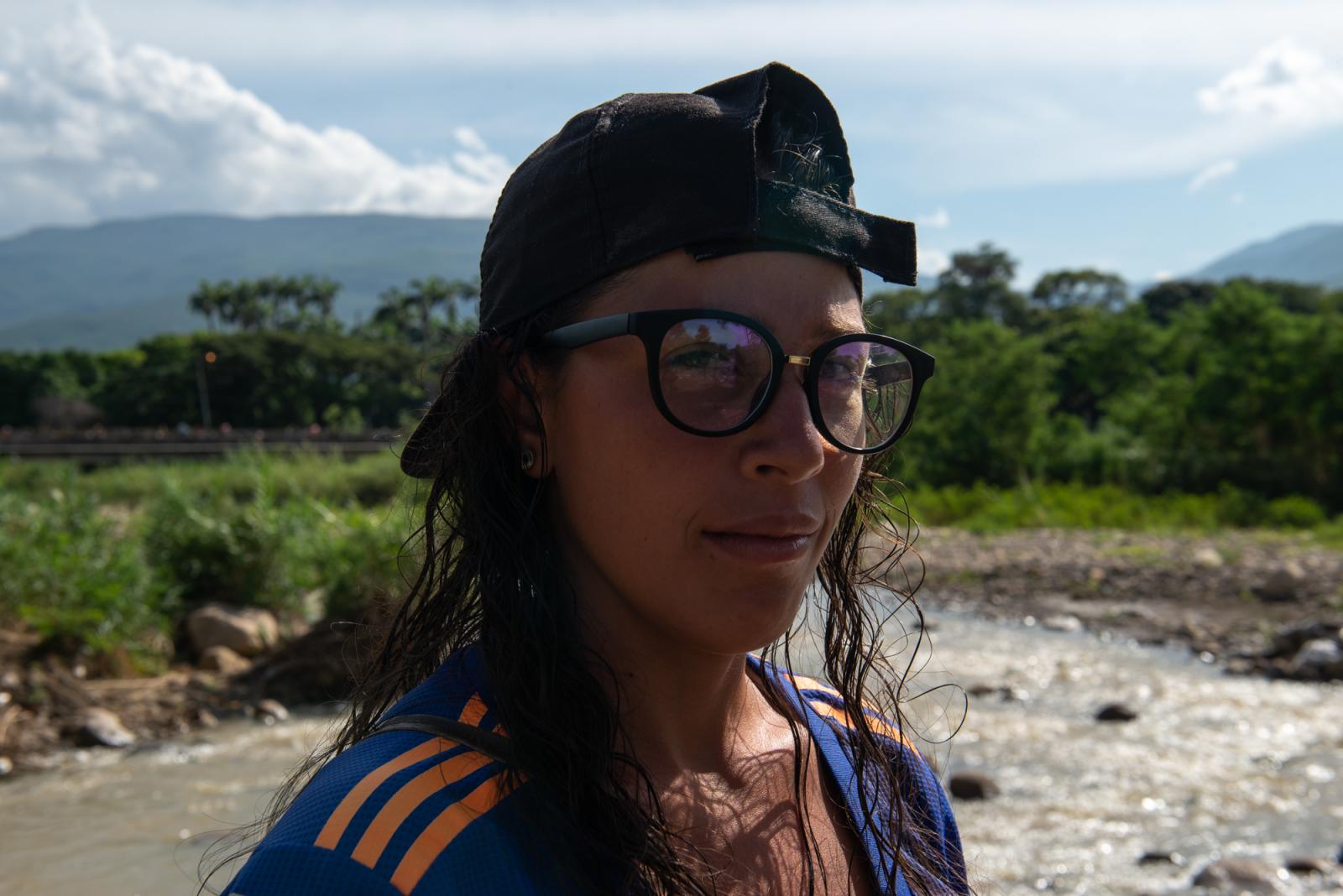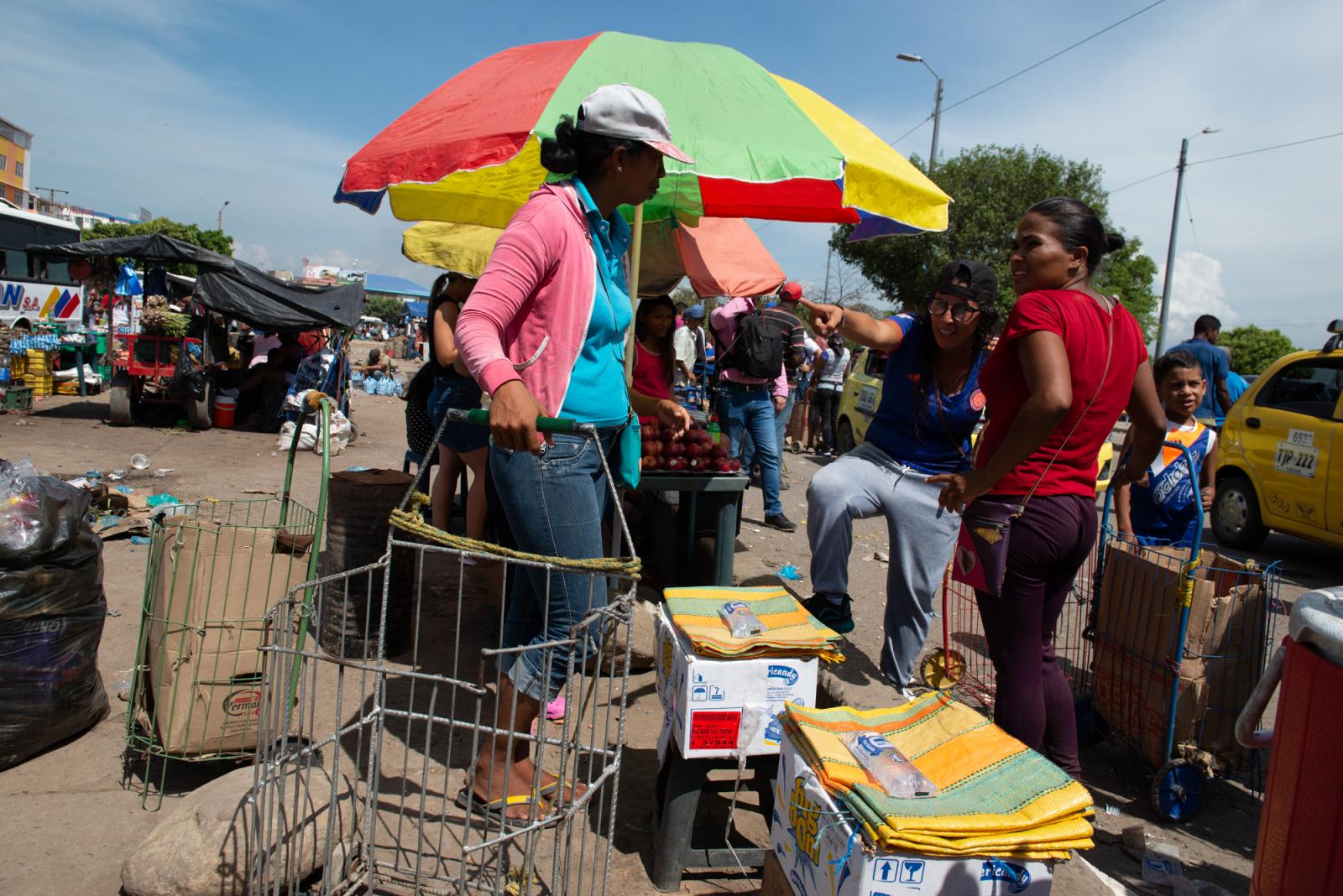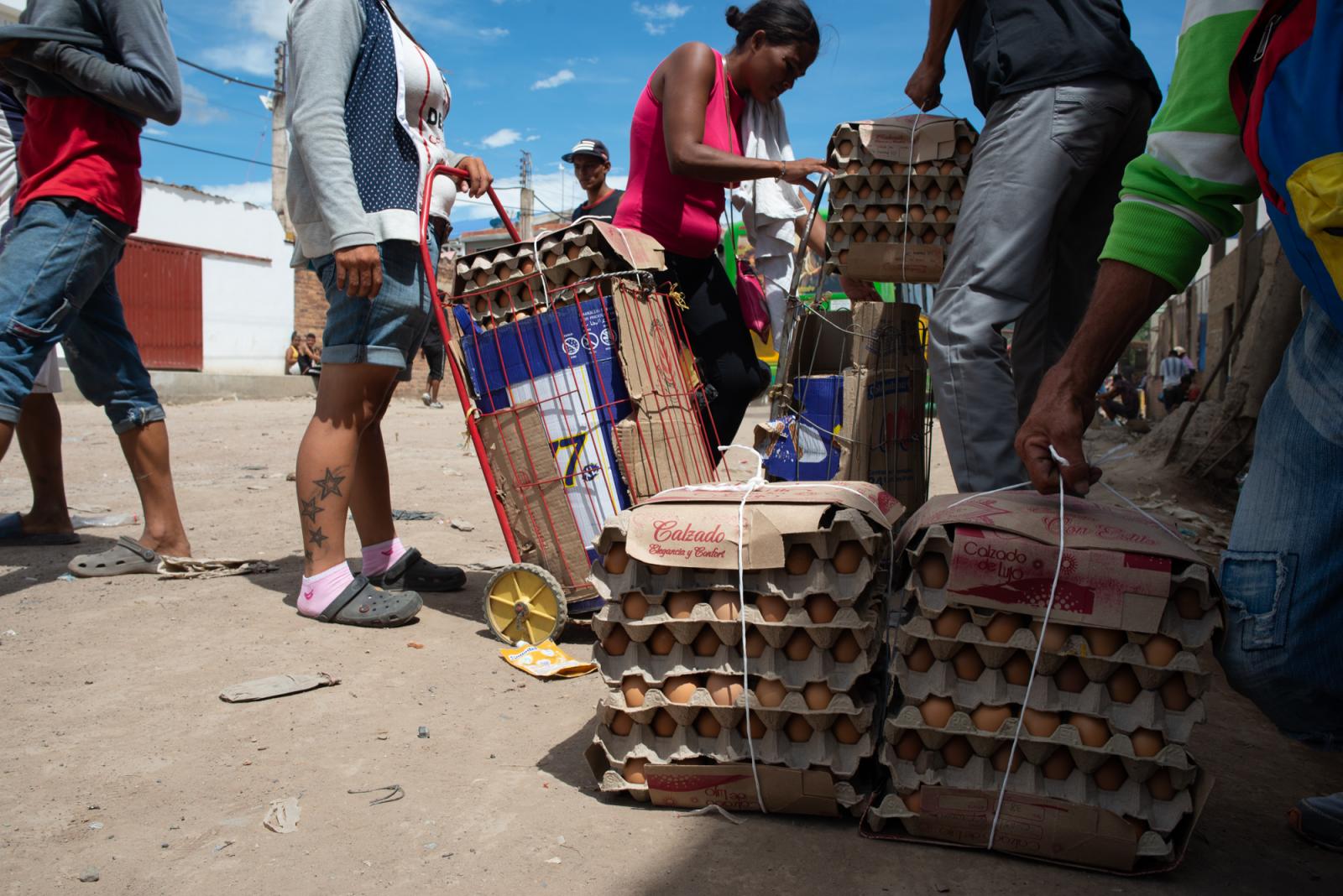Public Story
Garrucheras
Every day, Nelly Castellanos crosses the Colombia-Venezuela border for a living. Sometimes six or seven times – the more, the better. She carries all kinds of goods – food, appliances, household items – sometimes as heavy as 50 kg, under the heavy sun pushing a metal cart with swollen hands, her forehead sweaty under a navy blue cap.
“At home, I did nothing,” she says, recalling her life back in Caracas, Venezuela. “I just studied at university.”
The first day on the job carrying goods in Cúcuta, Colombia, Nelly even got sick with fever and headaches. Thousands of Venezuelans barely make a living from carrying goods across Simón Bolívar bridge and only a few of them are women like Nelly.
In 2019, 35,000 people cross the bridge every day, the busiest border point between Colombia and Venezuela, and 5,000 leave their home country for good. Nearly 5 million Venezuelans have left their country in recent years due to the economic and political crisis – the biggest mass displacement since the Syria war.
Over 30,000 Venezuelans living on the other side of the river economically depend on the border and cross daily into Colombia to work, buy goods, get health care or go to school.
The women carriers call themselves “Garrucheras.” Nelly and her friend Zulymar Garcia, who has three daughters, help each other finding clients and sharing trips. They’re trying to set up a women co-operative, with uniforms and a logo, so that they can all share profits.
Competition with men is harsh on the job – men have more physical strength to carry heavier goods and outnumber women. Men will often jump on the cars before they even stop the engine and harass potential clients while they try to open the taxi door.
Nelly and Zuly, instead, prefer to wait on the sidewalk and let the client decide who will carry their goods. They tend to rely on regular customers who trust them and schedule appointments with them. “One has to learn how to deal with men”, Nelly says. “They say we’re the ‘weaker sex’ and they don’t let us work much because of that.”
Leaving everything behind wasn’t easy for these two strong women. They carry on every day, helping each other along the way. Zulymar hopes to build a home for her family and for her daughters to attend school. Nelly keeps working on her music career, reflecting about her feelings and her home country in her rap songs.
“Fight for your dreams and prove that you can,” Nelly says. “The female gender can, and we can show that we’re warriors.”
"Garrucheras" is a collaboration of the Garrucheras Collective: Mariana Vincenti, Marta Martinez and Nastassia Kantorowicz Torres.
This reporting was supported by the International Women’s Foundation’s as part of its Adelante Latin American Reporting Initiative.

